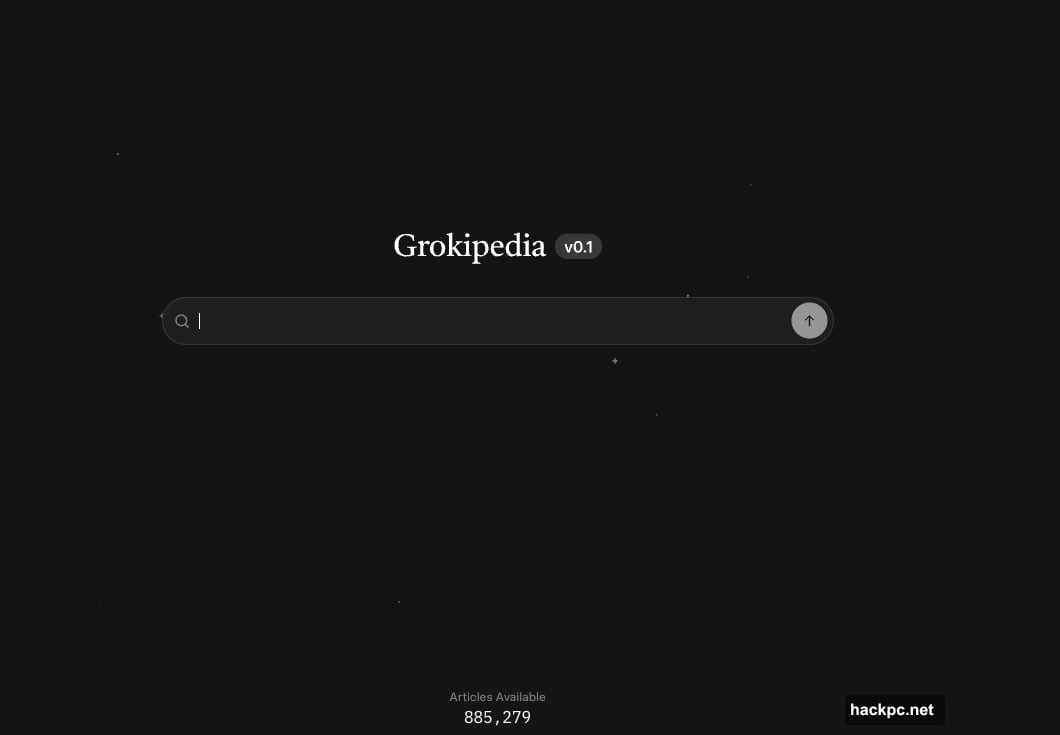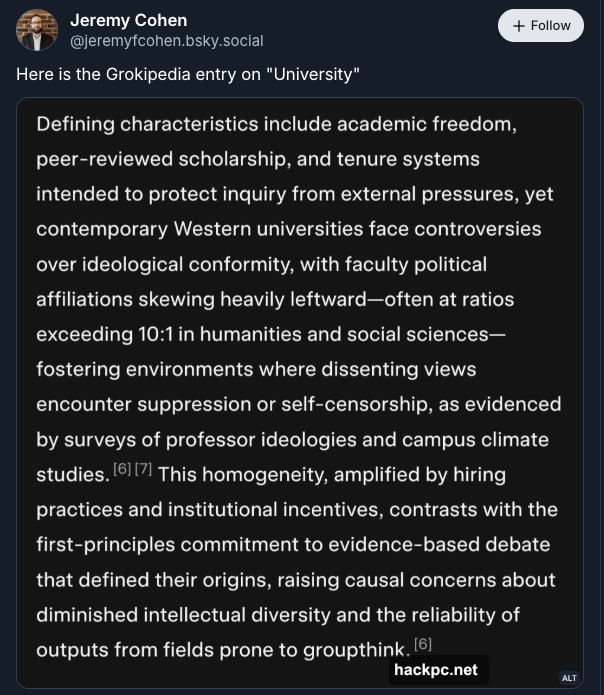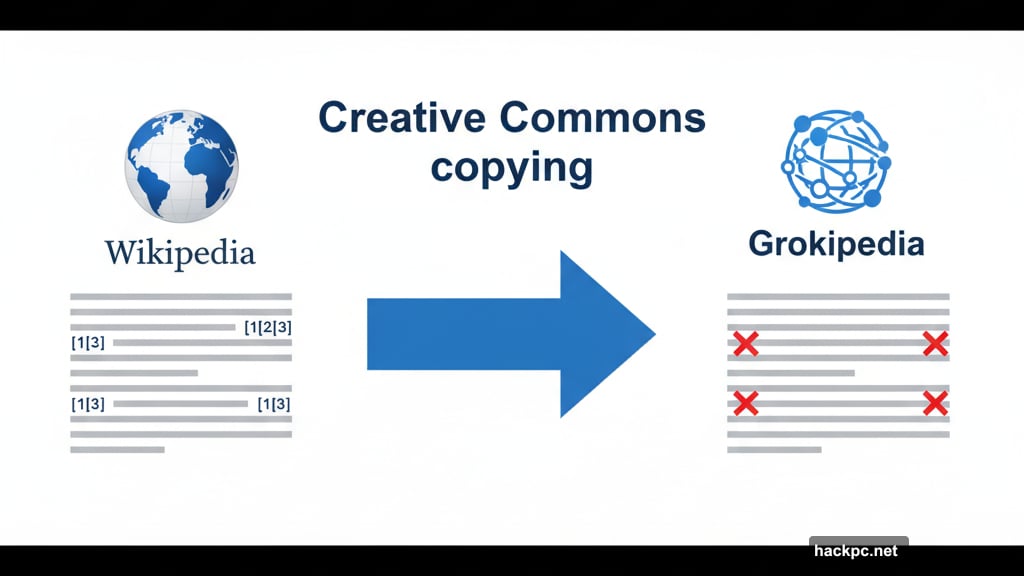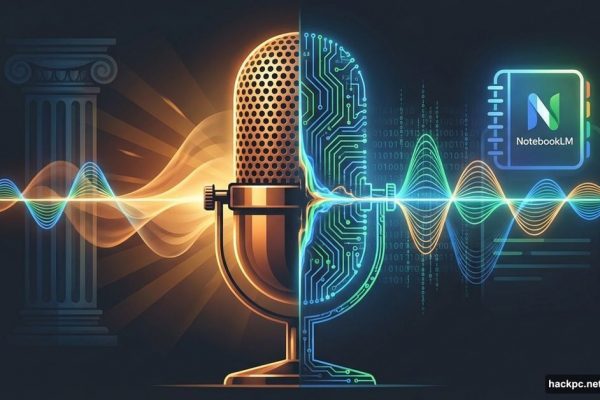Grokipedia went live Monday with 885,000 articles. But calling it an encyclopedia feels generous.
Musk’s xAI released its “AI-powered encyclopedia” after weeks of delays. The site crashed almost immediately after launch. Now it’s back online, and early reviews reveal exactly what critics feared.
Wikipedia Content With Musk-Flavored Edits
Most Grokipedia entries look suspiciously familiar. That’s because they’re copied directly from Wikipedia.
The site uses Wikipedia’s Creative Commons license to republish existing articles. But here’s where things get interesting. Some entries include subtle changes that align with Musk’s personal views and political positions.
Take the “university” entry. Grokipedia’s version inserts commentary about liberal bias and indoctrination. Wikipedia’s entry? Straightforward and neutral. The difference reveals the real purpose behind this project.
Plus, the Elon Musk entry reads like a PR piece. It emphasizes his achievements while downplaying controversies. Wikipedia maintains a more balanced perspective on the billionaire’s career and personal life.

The Source Problem Nobody’s Discussing
Grokipedia stripped out Wikipedia’s inline citations. Those little bracketed numbers that link to sources? Gone.
This matters more than it seems. Wikipedia’s credibility comes from its transparent sourcing. Readers can verify every claim by checking original sources. Grokipedia removes that verification layer while keeping the content.
So you get information that looks authoritative without the ability to fact-check it. That’s propaganda mechanics 101. Dress up opinions as facts, then make verification difficult.
The small disclaimer about Wikipedia licensing doesn’t fix this problem. Most readers won’t notice it. They’ll assume Grokipedia represents neutral, verified information. But the editing choices tell a different story.
Why Musk Built This
Musk spent years complaining about Wikipedia’s alleged bias. He’s called the platform left-leaning propaganda. Wikipedia founder Jimmy Wales repeatedly denied these claims with evidence.

But Musk wasn’t satisfied with criticism. He wanted his own version. One that could reshape information to match his worldview. Grokipedia delivers exactly that.
The stated goal sounds noble: “understanding the Universe.” The execution reveals something else entirely. This isn’t about understanding. It’s about control over how information gets presented and interpreted.
Musk delayed the launch last week to “purge out the propaganda.” The irony is thick. He’s replacing one information source with another that explicitly promotes his perspectives. That’s not purging propaganda. That’s replacing it with different propaganda.
What This Means for Information Access
Grokipedia won’t replace Wikipedia anytime soon. But it doesn’t need to.
The real danger is fragmentation. Different groups will cite different “encyclopedias” depending on which version confirms their beliefs. Shared facts become optional. Consensus reality breaks down further.
We’ve seen this playbook before. Create alternative information sources that look legitimate. Remove verification mechanisms. Gradually shift public perception. It works because most people don’t dig deeper than the first result that sounds authoritative.

Plus, AI-generated content makes this strategy more effective. Grok can churn out articles faster than human editors. It can maintain consistency across thousands of entries. And it can subtly adjust language to nudge readers toward predetermined conclusions.
The Verification Crisis
Here’s the uncomfortable truth. Most people won’t compare Grokipedia to Wikipedia.
They’ll search a topic. Find a result. Read it. Move on. If Grokipedia ranks well in search results, it’ll shape millions of opinions without scrutiny. That’s the goal.
Wikipedia succeeds because thousands of editors constantly verify and update content. They argue over neutrality. They demand sources. They remove bias when they find it. The system isn’t perfect, but transparency makes it self-correcting.
Grokipedia offers none of that. It’s AI-generated content shaped by one person’s vision. No public editing process. No community oversight. No correction mechanism beyond whatever xAI decides to implement.
So when you search for information, check your source. If it’s Grokipedia, treat it like any other opinion piece dressed up as fact. Because that’s exactly what it is.



Comments (0)